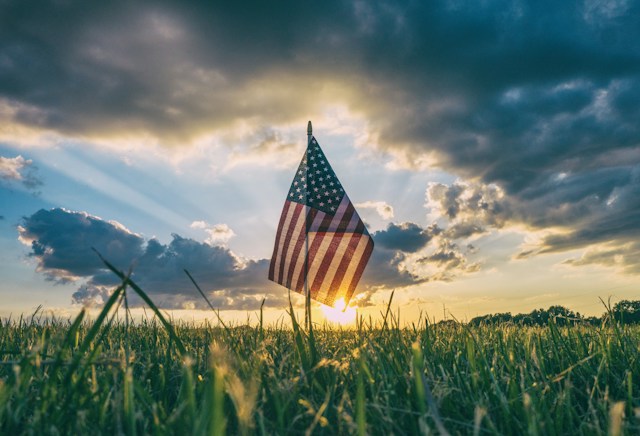Unlocking History: 5 Little-Known Facts About Presidents Day

Presidents Day is a significant American holiday that is more than just a day off from work and a shopping day. It is a chance to contemplate the things our country's leaders have done, to be happy about the thoughts of democracy, and to respect individuals who have made significant commitments to American history. Numerous Americans are familiar with Presidents Day, however, there are lots of little-known facts and stories about this holiday that individuals don't frequently catch wind of. In this article, we see five fascinating and well-known facts about Presidents Day, showing the various parts of this significant national holiday.
The Evolution of Presidents Day
Presidents Day has changed a lot since it began. The holiday began to respect George Washington's birthday on February 22nd at first. In 1885, it turned into a federal holiday to honor an American individual. However, it was only after 1971 when the Uniform Monday Holiday Act was passed that Presidents Day turned into how we know it today.
The Uniform Monday Holiday Act was made to give workers more long weekends by moving a few holidays to Mondays. Consequently, Presidents Day was moved from February 22nd to the third Monday in February. Along these lines, we can respect both George Washington and Abraham Lincoln, whose birthday is on February 12th.
The Various Names of President's Day
While Presidents Day is the main name for the holiday, it isn't the main name it has moved past time. The holiday has various names depending on where you are. For instance, in certain states, it's called Washington's Birthday, and in others, it's called Presidents' Day, with the punctuation after the "s" showing that it's daily for more than one president.
In addition to Washington and Lincoln, a few states likewise perceive express presidents. For instance, Alabama has a Washington and Jefferson Day to celebrate the presidencies of George Washington (first President) and Thomas Jefferson (second President). Arkansas also perceives the civil rights leaders George Washington (second President) and Daisy (third President) Gatson Bates (fourth President). Arkansas celebrates Washington's Birthday and Daisy Gatson Bates.
Presidents Day in Popular Culture
President's Day is frequently depicted in shown in movies, TV shows, and books. From shows about past presidents to interesting ones ridiculing the president, Presidents Day is a fun and moving day for individuals, everything being equal. What's more, individuals in the country have parades, reenactments, and instructive activities to celebrate Presidents Day. Presidents Day is still exceptionally fascinating and energizing for the American people because of how it is displayed in movies, Network programs, and other social things.
Presidents Day in popular culture is an impression of how individuals view and grasp the presidency in America. It can uncover a ton about how individuals view the president. Popular culture portrays various approaches to survey presidents, from rooting for them to calling attention to their defects. This assists individuals with understanding being a president and to ponder the difficulties that accompany it. By finding out about these social representations, Americans can all the more likely understand and value how the president has affected the country's collective identity.
Presidents Day Sales and Traditions
While Presidents Day is a day to endlessly reflect, it's also a period for big shopping and sales. Like the greatest shopping day of the year – Black Friday, Labor Day – Presidents Day has come to be a well-known time for retailers to offer discounts and sales to attract customers. Presidents Day bargains are recognizable because they come at a great time for customers. February is a bustling shopping month, with many stores trying to sell off their winter inventory to let loose space for spring things. Besides, with a long weekend, individuals have a good opportunity to shop without having to put off work.
As well as shopping and business activities, there are a few customary activities related to Presidents Day, including parties, parades, and educational events. These events are supposed to celebrate past presidents and urge individuals to be appreciative of their country and to partake in local activities.
Presidents Day Around the World
Even though Presidents Day is a holiday in the United States, its impact has been felt all over the world in many different ways. In numerous countries, Presidents Day inspires different holidays that honor their leaders or heads of state. For instance, in Russia, Presidents Day is celebrated on June 12th. It remembers the adoption of the Declaration of State Sovereignty of the Russian Soviet Federative Socialist Republic in 1990. South Africa celebrates Presidents Day on the fourth Thursday in April to respect every one of the country's presidents, at various times.
In addition, Presidents Day is celebrated as a time to honor democracy and the principles of leadership and government in some countries. Various countries might have various dates and customs, however, the feeling regarding superior individuals remains the same all around the world.
Conclusion
If you pay attention, Presidents Day can teach you a lot about culture, tradition, and history. Presidents Day began as a way to regard George Washington but presently it praises generally past presidents. It shows American democracy and leaders. Its numerous names, ties to various cultures, influence on business, and global significance demonstrate that it is significant to our country.
As we find out about how Presidents Day began and figure out fascinating things individuals may not be aware of, we remember that the holiday is affected by history, culture, and society's thought process. Furthermore, Presidents Day helps us to remember the enduring effect of leadership and the democratic values that the country was based on. On Presidents Day, we honor individuals who have impacted American history and vow to keep on supporting freedom, democracy, and fairness for everybody.








